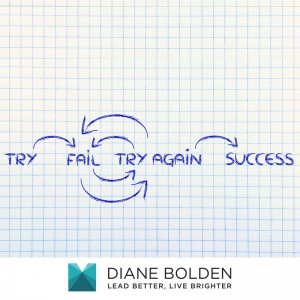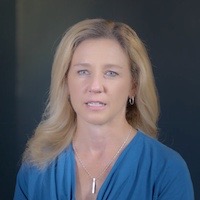Category Archives: Inspiring Yourself & Others
Moving Toward Mastery: 4 Tips for Overcoming the Beginner’s Dilemma
“Every master was once a disaster.”
I am all too familiar with that awkward, humbling stage that comes with learning something new – when you want to run with the stallions but feel more like a donkey. It’s a universal phenomenon, really. Ralph Waldo Emerson reminds us that, “Every artist was once an amateur.”
We can all learn a lot about our paths to proficiency by looking at the ways in which we have mastered things over the course of our lives – whether it is how to drive a car, play our favorite sport, or take up a new hobby. Upon reflection, I realized how I can transfer my learnings from one arena to the other.
(1) There is power in persistent practice.
Sometimes my yoga instructor demonstrates a pose that evokes a “you’ve got to be kidding” response from me. I always give it a try, and usually the first time I do I look a lot like I feel – completely inept. She managed to work one of those dreaded poses in for several weeks. But I gave it a shot every time, and I have to say it gradually became less awkward. Before too long I was actually able to hold the pose – even if only for a few seconds. And I realized the more I practiced, the better I would get and the easier and more fun it would become.
Isn’t that like life, though? Every day there are things you can sail through and there are those things that require practice and patience before you can feel even the least bit effective. But if you keep at it, one day you will surprise yourself with how far you have come. And everything that led up to that point will be worth it.
(2) Learn from and admire others, but don’t compare yourself to them.
As a novice, you watch people perform so that you can see how things are done. And even as you gain skill, you can still learn a lot from others’ examples. But the minute you begin to compare yourself, you will lose your focus and dilute your effectiveness. This is true regardless of whether comparing yourself to others makes you feel inferior or superior.
When we gauge how well we are doing by comparing ourselves to others, the energy and focus that is required to perform effectively becomes scattered. And if you do not believe you can do something, you will inevitably prove yourself right. On the other end of the spectrum, when you believe you are outperforming others and become a little too smug, your confidence can turn into arrogance, which shifts your focus from what you are doing to how others are perceiving you. And anything that is more focused on appearances than substance lacks foundation and eventually crumbles.
The best of the best gain their confidence from within – as a product of their effort, focus, and the results that come with effort and focus. They don’t need to compare themselves to other to know that they are good – or to learn that they can get even better.
(3) Lighten up and have some fun.
When we get all balled up in knots trying to make things perfect and avoiding every possible misstep, we risk becoming stagnant and playing small. Getting too attached to the results leads us to stiffen up and become consumed with needing things to happen in the exact way we want them to. Without flexibility, we lose our ability to bend and make the necessary course corrections that allow us to ultimately excel. If you ever look at the top performers in any industry, sport, or artistic endeavor you will notice that accompanying their intensity is an ability to relax into their game in such a way that it appears easy and natural. The ability to play at work is another mark of the master.
(4) Replenish yourself regularly.
In our frenetic lives, it is easy to forget about the importance of pausing every once in awhile to make the most of our experiences – whether by giving ourselves a needed break, or simply taking a moment to assess where we are going, to what degree we are still on course, and what, if any, course corrections are necessary. Being willing to invest our precious time into replenishing ourselves in this way pays handsome dividends – and sometimes the times we think we can’t afford to slow down are in fact the times we cannot afford not to.
The speed and effectiveness with which we move toward mastery is a direct result of the way in which we approach our challenges and opportunities. The Real Leader’s Guide to Freedom & Flow Group Intensive is a program designed to help you make a bigger impact while enjoying the process, both on and off the job. Though the spring program is now full, you can get on the waiting list for priority access to the fall program, kicking off in September. For more information, visit The Real Leader’s Guide to Freedom & Flow Group Intensive.
Suffering a Setback? Use it as a Springboard
“The spirit, the will to win, and the will to excel are the things that endure. These qualities are so much more important than the events that occur.” ~ Vince Lombardi
Winston Churchill once said, “Success is not final and failure is not fatal – it is the courage to continue that counts.” Thomas Edison offered, “Many of life’s failures are people who did not realize how close they were to success when they gave up.”
Their words lead me to contemplate the very meaning of the words “success” and “failure.” Perhaps they are nothing more than labels we use for experiences that could very well be vital stepping stones. Both words are loaded with judgment that compels us to move closer to one and further from the other. But what if they are simply two sides of the same coin?
Consider the following events in each of these people’s lives:
- It’s been said that Abraham Lincoln failed in business twice, had a nervous breakdown, and was defeated in eight elections.
- Walt Disney was fired by a newspaper editor who thought he lacked creative ideas.
- When he was young, Thomas Edison was told by his teacher that he was too stupid to learn anything.
- Soichiro Honda, the founder of Honda, was turned down by Toyota for an engineering job.
- Before becoming a successful actor, John Wayne was rejected by the US Naval Academy.
- Lucille Ball was dismissed from drama school with a note that read “Wasting her time… she’s too shy to put her best foot forward.”
- Steven Spielberg unsuccessfully applied to film school three separate times.
- Michael Jordan was cut from his high school basketball team.
- Baseball legend Babe Ruth struck out 1,330 times.
- The first novel of best-selling novelist John Grisham was rejected by 16 agents and 12 publishing houses.
- Before going on to sell millions of copies in 27 languages, Robert M. Pirsig’s book Zen and the Art of Motorcycle Maintenance was rejected by 121 publishers.
- Deca recording company turned down the Beatles, with the reason “We don’t like their sound, and guitar music is on its way out.”
This list could continue for pages. What these people have in common is that they didn’t let labels like “success” and “failure” define them. They didn’t allow the events in their lives (or their thoughts and judgments about them) to get in the way of their dreams or what they knew they were capable of. And their courage, perseverance and determination benefitted not only themselves, but countless others – many of whom came generations later.
Another of my favorite quotes is from a woman named Susan Taylor who said, “Seeds of faith are always within us; sometimes it takes a crisis to nourish and encourage their growth.” Using this same wisdom, perhaps what some call “failure” is actually a catalyst – or even a prerequisite – for what others call “success.”
What’s happening in your life right now? What if it is the very experience you need to get where you most want to go?
If you are interested in more tips for transforming your setbacks to springboards, I encourage you to check out The Real Leader’s Guide to Freedom & Flow Group Intensive, an exclusive twelve-week group mastermind/coaching program/online training course kicking off the week of March 20. The program is a blend of online leadership development, small group mastermind, and one-on-one coaching, and is limited to eight people. Sign up today!
Why Losing Your Passion for Work is a Bigger Problem Than You Might Think
Has work become a bit of a grind?
You might tell yourself that work isn’t supposed to be fun – that’s why they call it work. But when you spend the majority of your waking hours just getting through the day or counting down to the weekend, you have a bigger problem than you might think.
Most of us don’t start our professions that way, but over the years disappointment, frustration and pressure can lead to disillusionment, disengagement, and burnout. Lack of passion and joy on the job will hit you hard in three major areas:
- Personally
- Professionally
- Organizationally
Let’s take a look at how work becoming a grind affects you personally.
You might think that as long as you can enjoy yourself after five (or six, or seven) and on the weekends, you will be just fine. But when you spend the better part of your day on a kind of autopilot, feeling like you’d rather be somewhere else, it’s hard to keep that negativity from spilling over to the rest of your life.
You may find yourself irritable, preoccupied, exhausted or just brain dead.
And whether you know it or not, that infringes on your ability to fully enjoy the things, experiences, and people in your personal life that you hold most precious.
You may even have a decent paycheck and enjoy a position of influence and status in your organization. But when the work you spend more of your waking hours doing is a continual grind, it’s easy to begin feeling as though life itself lacks meaning and fulfillment.
Perhaps you’ve made the decision (consciously or unconsciously) to put your personal happiness on the backburner in the name of your professional success and upward mobility.
Well, unfortunately lack of passion and joy on the job has a negative impact on your professional effectiveness as well. Let’s take a closer look at that.
Productivity
You can try all you want, but when you are exhausted and overwhelmed you will work very long days spinning your wheels without getting a whole lot done. You may think you just don’t have enough time to finish everything on your plate. And while it is true that time is finite, your real problem is lack of energy.
Creativity and Problem Solving
Lack of energy makes everything take far longer than it should. It blocks you from accessing your creativity, leads you to unnecessarily complicate things, and pushes the solutions to your problems just out of reach. All of this will contribute to a feeling of being unable to get important things done, which will cause you to work longer hours and become even more exhausted.
Influence
If your job requires you to have even the slightest degree of influence over others, consider this: getting someone excited about doing something is largely a matter of sharing your enthusiasm. But enthusiasm isn’t something that is easily feigned. And when you try to fake it, you will come across as being disingenuous, which will keep others from trusting you.
It’s exceedingly difficult to get anyone — whether they are your coworkers, your direct reports, or your customers — to become excited about something you can’t muster up the passion for yourself. And while we’re on the subject of coworkers, direct reports, and customers, let’s talk about the impact lack of passion and joy on the job has organizationally.
If you are a leader of others — whether you know it or not — you are setting the tone for the entire organization.
If you are not feeling emotionally committed, passionate, enthusiastic and connected to your work and the people you partner with to do it, chances are the people you lead will not be feeling it either.
Employee Engagement
Research indicates that as much as 70% of U.S. workers are not engaged. That translates into people who are physically present on the job, but not emotionally or mentally all there. When people are disengaged they go through the motions, doing as little as possible to fly under the radar.
The Cost of Complacency
This complacency causes all kinds of problems, including low quality products and services, plummeting productivity, low creativity and innovation, strained customer relationships, intra and interdepartmental conflict, absenteeism, high turnover, and ultimately low profitability. It does little to attract key talent, and certainly does not contribute to having a competitive advantage in the marketplace.
What does that have to do with you?
Engaged employees are people who feel part of something bigger than themselves — an organization with a shared purpose that has meaning to them. And they want to work for a boss who is turned on and tuned in to the organization and them as people.
If you have no passion or joy for your own work, you will be hard pressed to inspire it in others. In fact, you could end up unwittingly sucking the joy from those who already are engaged, and/or driving them to look for work elsewhere.
In Summary
Losing your passion and joy at work has significant implications for you on three different levels:
(1) Personally. You just can’t turn it on and off like a light switch. If you are feeling a lack of passion and joy at work, chances are good it will translate into your personal life, like a dark cloud that follows you around despite your insistence that you can shoe it away. You deserve more out of life than that.
(2) Professionally. The overwhelm, frustration, and exhaustion you feel is likely keeping you from performing at your best. While you may be working very long hours, your problem is not lack of time but rather lack of energy. Lack of energy is accompanied by lack of creativity, problem solving and influence. Energy comes with passion and joy. And when passion and joy are lacking, your performance will be lacking too.
(3) Organizationally. Just as passion and joy can be contagious, so too is the lack of it. A leader’s lack of passion and joy gets translated into disengagement, both for the leader, and the followers. Disengagement negatively impacts productivity, innovation, customer satisfaction, employee recruitment and retention — and ultimately profitability.
So if you feel like work has become a grind — but not a problem you have the luxury to address right now, think again. It may well be that you can’t afford not to. Rejuvenating your passion and joy on the job is easier than you think. And it doesn’t necessarily mean that you have to find another job.
Consider making reigniting your passion at work a priority.
And if you are interested in receiving some support and guidance, I encourage you to check out The Real Leader’s Guide to Freedom and Flow Group Intensive, an exclusive twelve-week small group mastermind/coaching program/online training course kicking off on March 20. Sign up before March 10 and receive a 15% early bird discount!
How to Create Your Ideal Job
“Whatever you do in this life, take time to sit quietly and let the world tell you what it needs from you. Take a moment to honestly understand what your gifts are – you all have them. The way you choose to live your life brings meaning to your life.”
~ Ann Reed
I’m continually amazed by the number of people who stay in jobs they are miserable doing.
Many rationalize that they must make the best of it, but in refusing to consider the options that are often right in front of them, they may not even realize what the “best” is. When we allow ourselves to stagnate, ignoring the impulses and desires we may have to bust out of our self-created constraints, we also unintentionally block the energy that we could be freeing up in those who surround us, whether they be direct reports, peers, customers, family members, or others. We do not do the world any favors by playing small.
You possess an inborn talent that allows you to do something in a way that no one else can.
When you find this talent and apply it to an area of opportunity or need within an organization, you can create a job for yourself that will reward you with immense satisfaction and fulfillment. You’ll find you can achieve extraordinary results with ease and accomplish things people previously thought were impossible. And you’ll serve a vital function for the organization or community of which you are a part, which will in turn give you a deep sense of meaning and purpose.
The key is to pay attention.
Notice what you do that leads to extreme satisfaction and joy and seems to come naturally to you. It’s easy to downplay our strengths—to rationalize that they are no big deal or that everyone can do what you believe are silly little things as well as you can. The truth is that not only can everybody not do those things with the level of skill and finesse that you can, but also that not everybody would want to.
Creating your ideal job or opportunity is a lot like looking for the perfect candidate for a job.
Except in reverse. When companies look to hire someone, they do well to spend time identifying the specific qualifications the ideal candidate will possess. When creating the ideal opportunity, you are that ideal candidate spelling out the distinct responsibilities and kind of work that would be a perfect match for your talents.
The more specific and concrete the job description and ideal candidate description, the more likely a company will find their key player. And the more specific and concrete your picture of your ideal opportunity, the more likely it will come finding you. The clarity of your vision will compel you to act in ways that make you the ideal candidate and enable you to position yourself as a contender.
Even if all you can start doing right now is entertain the idea that perhaps there is something grander out there for you that is aligned with your talent, interests, and passion, you will begin to mobilize energy in ways you could not before.
The more you can internally make it real for yourself, the more it will outwardly come to be.
As you move toward unleashing your true talent and being open to the opportunities that begin to present themselves to you, you will see the way to lead others—inspiring them to bring out the best in themselves by showing them how it is done.
Interested in more strategies for getting clarity on your ideal work and taking steps to move toward it? Stay tuned for more information on my upcoming online course and group intensive, The Real Leader’s Guide to Freedom and Flow, or click here to get on the waiting list and get first priority (with no obligation) at the limited spots that will soon be available.
How to Overcome the Fallacy of Failure
“What great thing would you attempt if you knew you could not fail?”
~ Robert H. Schuller
I love the above quote because it inspires me to think big.
I often make lists of all the things that I’ve dreamt of creating or being a part of. I encourage my clients to do it too. But when I begin to contemplate actually doing the things on those lists, the concept of failure often creeps in and makes its presence known with a long, dark shadow.
It’s easy to shoot for the moon until the prospect of crashing to the ground enters the picture.
We can dream and scheme all we want, but making our dreams real requires us to act. And doing so brings us nose to nose with what is likely our most formidable opponent: fear of failure.
Failure means different things to different people.
But I think the most fear-provoking thing about the idea of failure that it leads to pain—pain of rejection, embarrassment, loss, financial ruin—not to mention its actual physical variations. The interesting thing about pain is that—thankfully—it is usually finite. It comes and it goes. And though we may not always have any control over whether we experience it, we do seem to have some say in how long it lasts and how uncomfortable it gets.
When I used get immunizations as a kid, I remember getting all worked up…
…before the needle even came close to my skin. And I’ve watched my kids do the same thing—even screaming or howling before contact was actually made. But seconds later, the injections are done before the kids even realize it. They left the exam table and went onto other things without delay—except maybe when one of them needed a little more sympathy and dwelled on the puncture or the blood on the bandage—prolonging the unpleasant experience and making it into something far more painful than it really needed to be.
I think we do the same thing when we anticipate the pain of what we consider to be “failure”.
Our minds have a way of making it far more ominous than it ever is in reality. And if we happen to find ourselves experiencing it, we can also fall into the trap of unwittingly making it more uncomfortable than it needs to be. But we can also use resilience and determination to bounce back and focus on something that will help us move forward in spite of an otherwise unpleasant experience.
I prefer a slight variation of that opening quote that goes like this:
“What great thing would you attempt if you knew there was no such thing as failure?”
Because it really comes down to what your experience—regardless of the way it turns out—has given you, rather than cost you. People who have accomplished extraordinary things in their lives are the first to tell you that they have had more than their share of what many refer to as “failure”. And many will tell you those experiences were, in fact, prerequisites for their success. What differentiates them from those who allowed “failure” to defeat them is that they got back up, figured out what they could learn, and moved forward, equipped with a new awareness, a new understanding, and renewed commitment to their greatest dreams and visions.
I think we all need a shot from time to time.
A shot of humility, compassion, and humor. A shot that will only serve to make us stronger, more determined, and far more resilient than we were before.
What great thing can YOU achieve today, knowing that you simply cannot fail?
Are you interested in more strategies for overcoming the fallacy of failure and strengthening your courage, resiliency, and momentum toward achieving your visions and aspirations? Stay tuned for more information on my upcoming online course and group intensive, The Real Leader’s Guide to Freedom and Flow, or click here to get on the waiting list and get first priority (with no obligation) at the limited spots that will soon be available.
Harness the Power of Possibility in Your Work and Your Life
“All our dreams can come true, if we have the courage to pursue them.”
Over the holidays, I had the delightful experience of traveling to Disneyland with family.
Every time I go there, it is like stepping into an alternate reality—one where the stresses and anxieties of the week before simply dissolve and the child in me emerges.
I am mesmerized by every intricate detail so carefully attended to by the multitude of people that make Disneyland what it is—from the enchanting castles and belly-dropping rides, to the perfectly manicured gardens and the warm smiles and tireless energy of every cast member.
And I can’t help but revel in a deliciously goose-bump-building thought.
All the wonder, delight and magic of this place—as well as everything that is associated with it (the movies, cartoons, storybooks and associated media)—ALL OF THIS began with a single thought in the mind of a man who took action to make it real.
I don’t know a lot about Walt Disney, but I imagine he was gripped by an idea—a dream that captured his heart and burst inside of him until he was compelled to gather the people and resources to make it happen.
This guy had a vision that couldn’t help but be embraced by others.
It spoke to their hearts and their spirits, and allowed them to be a part of something that does the same for everyone who encounters it. Disneyland is the “happiest place on earth” because it brings out the best in everyone who experiences it. It unleashes the magic each of us carries somewhere deep within us, and the most traditional of fairy tales are about that very subject. Even the performers on the various stages throughout the park sing refrains about looking within to find our heroes. What an amazing creation!
We all get inspirations from time to time. And the more we act on them the more we seem to receive them.
Ideas are a dime a dozen. When was the last time you got one that gave you goose bumps? And what did you do to take it to the next level of creation? Were you overwhelmed, thinking it was too big, or unrealistic to actually achieve? Perhaps it is too big for one person. But what if you were able to create a vision like Walt Disney did, that resonated in the very core of people who would gladly partner with you to make it real?
You have something inside of you that is waiting to be unleashed into the world.
The very act of doing it will rock your world, and that of others as well. Maybe it isn’t a multimillion dollar theme park, or a screenplay, or an organization. But whatever it is will carry the unique essence of you—who you are—and the compilation of everything each of your individual experiences has prepared you for. And if you bring it forward with the intention of making the world a better place, you will.
Who are you to deny that you are meant for greatness?
The beginning of every new year brings with it questions of what we most want to create in our lives and our work. If you are interested in strategies for better connecting with your vision and taking steps to bring it to fruition in a way that feeds and fulfills you, stay tuned for more information on my upcoming online course and group intensive, The Real Leader’s Guide to Freedom and Flow, or click here to get on the waiting list and get first priority (with no obligation) at the limited spots that will soon be available.
How to Create Moments of Meaning (Even in the Midst of Mania)
“You ready for the holidays?”
It’s a question people often ask each other this time of year. I don’t know if I’m ever ready – from the standpoint of having all the boxes checked, anyway.
I know there are people out there – you may be one of them – who finished their holiday shopping weeks ago, had their houses beautifully decorated on or before Thanksgiving day, and seem to find the time to send handmade cards to everyone they know. I have secretly dreamt of being one of those people, and maybe someday I will be.
I tend to identify more with those still scurrying around at the last minute. You know, the ones dashing to the mall on Christmas eve for that one last present they forgot about and return home to feverishly wrap gifts before people come over – all the while swearing that next year will be different.
What I really long for is to simply enjoy every aspect of the holidays.
It is a season of giving, sharing, and celebrating something bigger than ourselves. It brings us together and transforms our everyday lives into something sacred.
And this opportunity is always available to us.
With every gift we buy or wrap, every card we send, or every decoration we hang, we have the ability to infuse it with presence – our ability to be truly engaged not only with whatever it is we are doing, but with the bigger reason of WHY we are doing it – even if we get a late start.
Perhaps the ideal is not in being able to do more things sooner, but to put more of ourselves into the things we are able to do now despite whatever circumstances we find ourselves in.
When people pour their hearts into whatever they are doing, you can feel it.
The cards that arrive in our mailbox that have been perfunctorily generated don’t seem to move us as much as those people have taken the time to hand write something on – even if it is just our name. Likewise, the gifts that had some element of thought in them often end up meaning more to us than those someone spent a lot of money on. The true spirit of giving is more about the spirit than the gift itself.
And the spirit of giving and celebration doesn’t have to end in December.
We have the ability to enrich every moment of our lives with it. Albert Camus once said, “Real generosity toward the future lies in giving all to the present.” That means forgetting about all our preoccupations and busyness and being right here, right now – truly engaged in the purpose of whatever it is we are doing and deeply connected to whoever we are with.
In business and in life, this practice separates the most truly prosperous and successful people from all the rest. They have a knack for making others feel valued and for infusing meaning into whatever it is they do or invite others to do. They spend their time doing what is most important and pour their hearts and souls into it. As a result, they are living examples of whatever they believe most strongly in.
Perhaps this is the true art of giving, living, and leading – one that transcends holidays and spills over into our every day lives.
It’s never too late to start bringing more presence and engagement into your life amidst the frenzy of a crazy schedule and ongoing demands, despite the time of year. Stay tuned for more information on my upcoming online course and group intensive, The Real Leader’s Guide to Freedom and Flow, or click here to get on the waiting list and get first priority (with no obligation) at the limited spots that will soon be available.
Wishing you and yours a beautiful and blessed holiday!
Why Believing Is Seeing – Regardless Of Proof
One day when my kids were younger, they had a play date with some friends. I heard one of them telling the other that Santa Claus wasn’t real. My son, who was eight years old at the time, vehemently defended the jolly old man, with elaborate explanations of why something not easily proven was worth believing in anyway.
It reminded me of my own childhood.
I had to laugh, as I flashed back to one of my own experiences with a little girl in my neighborhood who made fun of me for believing that a fat man in a red coat actually came down my chimney every year. I was so mad that, when she wasn’t looking, I broke all her crayons and put them back in the box (and spent the rest of the holiday season worrying that I had just put myself on the naughty list).
I have since learned that it is okay if everyone doesn’t believe what I do.
And if he hasn’t already, my son will learn that too. But he is the one who taught me something that day. I was buoyed by his unwavering belief and faith in something he’s never really seen and inspired by his example.
I can’t help but believe that those who trust in something magical will experience that magic in ways the skeptics will not. And I think the same is true in life.
There will always be someone around to tell us what cannot be done.
And there will also always be people who, upon being so told, will do it anyway. Their faith, determination, and belief in something they have yet to see will allow them to persevere until their dreams become reality.
One of my favorite authors on personal and spiritual growth, Alan Cohen, once said “You do not need to get others to believe in your truth. You just need to live it.”
Trust, faith, and perseverance go a long way.
In a world where much is uncertain and the old success formulas no longer seem to work, I believe it is more important than ever to trust in what we know to be true in hearts, even if our minds cannot figure it all out. It may go against what we have been conditioned to believe, see, and do – but perhaps this makes it even more important.
To bust out of old paradigms that keep us from realizing our greatness, perhaps we need to stop questioning what is possible and start challenging our limits instead. As we do, we will begin to make manifest that which we previously only dreamed was possible and, through our example, show others the way to rise.
Believing what we want to see is especially important when creating our future. But it is only one component of a vital process I’ll be covering in my upcoming online course and group intensive, The Real Leader’s Guide to Freedom and Flow. Stay tuned for more information or click here to get on the waiting list and get first priority (with no obligation) at the limited spots that will soon be available.
How to Unlock the Power of Gratitude
“Gratitude unlocks the fullness of life. It turns what we have into enough, and more. It turns denial into acceptance, chaos into order, confusion into clarity… It turns problems into gifts, failures into success, the unexpected into perfect timing, and mistakes into important events. Gratitude makes sense of our past, brings peace for today and creates a vision for tomorrow.”
– Melodie Beattie
Someone once sent me the above quote in a card.
I remember being very moved when I read it. It speaks to our ability to interrupt what seems like a perpetual condition of restless yearning. From such an early age, we become conditioned to always look for more – to achieve more, to have more, to become more. With such an orientation, even the fruits of our labor are not fully embraced before we feel compelled to run off and do something else.
Gratitude is a state of being rather than doing.
It is a matter of what we focus on. All of our striving and yearning keeps us fixated on what we do not yet have, but desperately want. It leaves us in a state of lack, feeling as though we must compensate for something. Gratitude reverses that and allows us to soak up and truly experience the fullness of what is already ours. In gratitude, we can fully appreciate the richness of life around us – no matter what it looks like. From that state, we can more fully connect with those we love and appreciate and truly enjoy each moment as it unfolds.
Soon the day we call Thanksgiving will be upon us.
It brings with it the opportunity to celebrate – if only for a day – the richness and bounty that is ours. But this state of appreciation and celebration does not need to stop after the day is done.
For all that we want, there is much that we already have.
When we shift our minds into states of gratitude, we are likely to act in ways that bring more to be thankful for. As I love and appreciate the important people in my life, I become more lovable. As I give my time and attention to others, I realize there is a place within me from which I have much more to give. Even with the things I really want in life, I can begin to realize the small (and big ways) in which those things are already here – and be fully present to the manner in which they are already unfolding, trusting in life’s beautiful mystery.
No matter who you are or what your life is like, you have something to be grateful for.
It has been said that whatever your place your attention, energy, and focus on will expand. Perhaps this is the true art and power of gratitude – our ability to be in a place of joy and abundance and magnify it in such a way that it truly enhances the quality of our own lives, and everyone around us as well.
If you find yourself in an environment that is difficult to appreciate or feel that what you really want is a change of some sort, gratitude might be a difficult place to start to begin crafting your desired future. In my upcoming online course and group intensive, The Real Leader’s Guide to Freedom & Flow, I teach high achieving professionals strategies for leveraging their experiences to move closer to their ideal vision so they can make a bigger impact doing meaningful, inspiring work and enjoy their lives more – both on and off the job. Stay tuned for more information or click here to get on the waiting list and get first priority (with no obligation) at the limited spots that will soon become available.
Happy Thanksgiving!
Could You Be in the Presence of Greatness?
Who is your favorite performer?
Some of the most memorable performances I’ve had the opportunity to enjoy have been Springsteen concerts. The Boss. I’ve stood in the sold out stadiums before the show started along with thousands of other people waiting eagerly for the music – and the magic – to begin.
And Springsteen really does create magic. In a matter of minutes, he seems to effortlessly transform the entire building and everyone in it into a kind of portal that vibrates with possibility, energy, and spirit. Throughout the rest of the evening, he takes his audience right into the music with him and allows everyone to become a part of it.
I have never left a Springsteen concert feeling anything less than incredibly inspired and somehow renewed – as though some part of me I didn’t even know I had woke up while I was there and begged to be released into the world.
A Curious Thought…
The last time I saw Bruce in concert I was musing over the fact that he, like all of us, has at one time or another most likely ordered a hamburger at a fast food joint or stood in line at the grocery store. And I reveled over what it would be like to be standing there behind him – perhaps before he recognized his own inner genius and believed in it enough to write and record the music that would inspire others to give life to their own.
Would I Know That I Was Standing in the Presence of Greatness?
Could I somehow feel it? Or would I move through the rest of my day unaware of how close I’d come to magic? And then I began to wonder about the people I actually do stand in line behind in the grocery store these days. Who’s to say that one of them isn’t destined to touch the lives and transform the worlds of many as well with their own unique talents and passions?
Do You Know Greatness When You See It?
In December of 2007, the Washington Post persuaded Joshua Bell, one of the finest classical musicians in the world to be part of a social experiment. On a cold January morning, this internationally acclaimed virtuoso stood leaning against a wall next to a trash can in a Washington D.C. metro station with a baseball hat on his head playing some of the most intricate pieces ever written with a violin worth over $3 million dollars.
Over the course of the forty-five minutes that he played, a total of 1,097 people passed by this musician who only two days prior played a sold out theater in Boston’s Symphony Hall where the seats averaged $100. Only seven people stopped and stayed – most of them only for a minute or two. Twenty seven gave money, mostly change, for a total of $32 and some cents. He ended each piece with no applause, no acknowledgement of his performance – or even his existence.
If people could be in the presence of someone like Joshua Bell while he was performing without stopping to appreciate and savor it for even a moment, perhaps it is also feasible that we are in the presence of greatness every day in some way – without even knowing.
It could be in the person who serves you your morning coffee, the guy in the cubicle next to you, one of your own children.
Maybe it could even be the person who stares back at you in the mirror.










